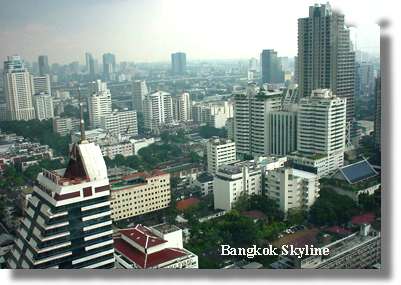Beware of self acclaimed "investment counsellors".
Beware of self acclaimed "investment counsellors".
Savers all over Thailand are rather confused what they should do with their hard earned money. Bank interest rates remain at 30-year lows making all big and small anxious to do better. In Phuket for example, a real estate glut is quickly developing as capital holders are desperate on getting higher returns.
Over the past many years I have seen advertisements in various local newspapers where foreigners call themselves investment planners and other often self acclaimed designations. While they might recommend a client to have a last will & testament so to appear more than what they are, many are just promoting an insurance related product.
The Swiss for example, are known for promoting annuity contracts around the world. They are supposed to be all things for all people. While some have value in that the principal is rarely lost -assuming the contract's is kept to maturity. There are too many variances often providing a death benefit along with a below average rate of return.
Some have additional sweeteners (like example the annual premium is paid if totally disabled) but along come tough clauses. Like what is the definition of totally disabled. Also, never assume these are the same contracts as are marketed in their respective home countries!
These too often these self acclaimed "investment experts", advertise and then actively solicit foreigners here to "invest" in so called "savings plans", which are more like life insurance policies. Where the insurance is paid for by promising a rather meagre return in the end. Cashing out before can result in various stiff penalties.

In the US for example, life insurance contracts are never allowed to be called or advertised as savings programs or "making deposits" because they are not. Rightfully so, frequently they are a rather expensive way to save for retirement -besides generate a great commission to the salesperson. It's not just insurance, beware also of basic annuity contracts called all kinds of names. These work in similar fashion but there is no death benefit included. Too often the returns are just as mediocre.
Frequently representatives have little true investment or educational background, many claiming you can get a large death benefit and a good savings program all in one. "And if you do not die young you get all your money back in 20 years", one said. What they frequently not show you is that if you cancel within say the first 3-5 years, you most often loose all funds paid in since the start. As not paying is the same as cancelling. Most all money paid in the first 1-3 years or so goes for commissions to the various layers of sales people and management.
Money accumulating even at a low interest rate of say 3-5% per year, will double in value in about 15-18 years. Hence, just "getting all your money back" 20 yrs. later is in fact a terrible rate of return! Again this is why in most developed countries it is illegal to call such policies "saving programs".
Too often they areA hybrid of both (insurance and savings) -and not too much of either. What you are paying for is the convenience and/or the insurance and/or the good service... but, any way you slice it, this is an expensive way to save, even over the long run! These policies may not at all be the same contract quality as sold in their home market -even while having the same company name. They do not have to pass the scrutiny of their own strict home based Insurance Commissioner, which approves or not, such policies there.
While some are no doubt well intentioned and maybe competitive, I have never seen any which would convinced me. Far too often they are just sold to unsuspecting good folks who are told the "stock market here is manipulated" and nobody should take such risks. Nonsense. Promoting the fear only so to then advance their own marginal product -at high commission rates to themselves.
Some key questions to ask are:
---What exactly will I get back (if anything), if I stop paying for this policy in the first 2-5 years.
---What is the true rate of return of say saving money consistently for many years at a comparable interest rate, vs. this policy's actual rate of return. The difference is what your hidden or not, real costs are for this policy.
---Ask if this is this the exact same contract where the company is home based in.
Savers and investors here should be warned that "savings programs" are far too often an insurance product. Western style developed insurance commissioners are keen to such abuses as these are one of the top consumer complaint generator in more developed economies.
One last word on insurance, never confuse health with plain accident insurance.
Key Question #1: does the policy only pay for accidents? Statistics show, most people sooner or later get sick and very few compared to all, have accidents. Just accident insurance is not health insurance and should never be confused. Find out what the exact definition is of an accident. As some sicknesses can come through an accident.
Key Question #2: is the health insurance policy guaranteed renewable? And at a guaranteed price? Meaning, could the company cancel you anytime? Or, could the price of the insurance suddenly go up? Far too have paid an insurance for years only to one day find out the company is cancelling their coverage or tripling or more the annual premium.
I feel qualified to make the above observations as I for 5 years worked as a licensed insurance agent in the US.
As an investment professional in the securities market I feel it is correct to point out that a rational diversified stock portfolio over time, has shown to far often produce superior results to most alternatives. This as compared to the inflation rate or the local savings rates. With the SET far lower then just a few years ago what better time then to start now. In my view, it would be a mistake to ignore the stock market in Thailand as when things go right, values most often soar. We are closer to this point now.

Best Regards,
Paul A. Renaud www.thaistocks.com

